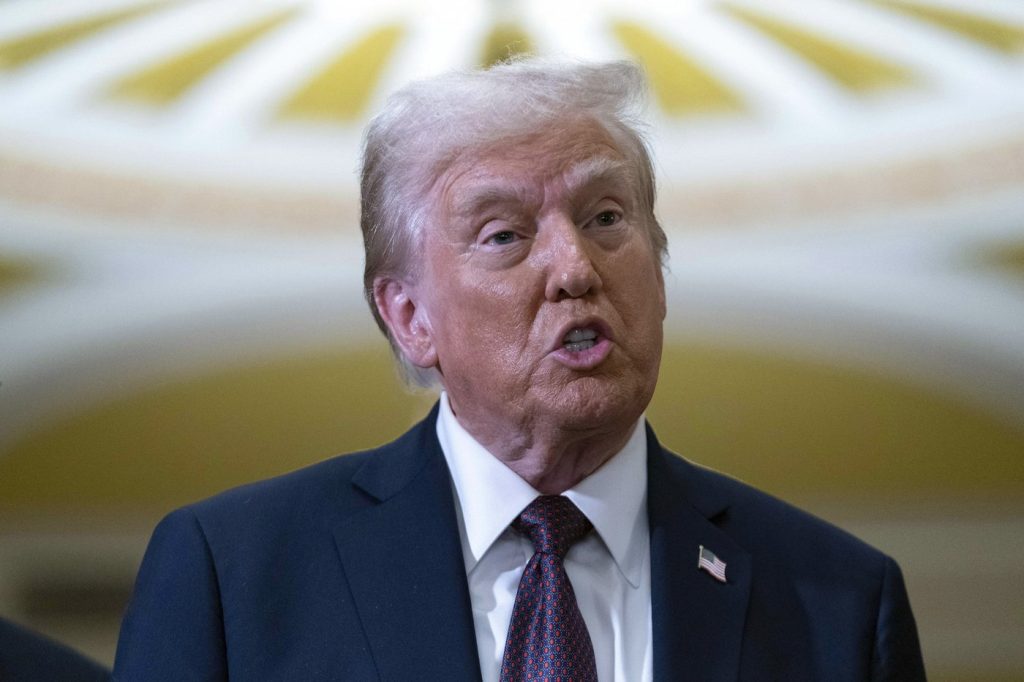PARIS (AP) — President-elect Donald Trump has sparked controversy with his expansionist rhetoric concerning U.S. territories and international borders. He has suggested the U.S. should extend its influence into Canada, the Danish territory of Greenland, and even further south to the Panama Canal. Trump's comments imply that boundaries may be redrawn through force if necessary, which has alarmed European leaders and contradicts their ongoing discussions with Russian President Vladimir Putin regarding Ukraine.
European leaders, accustomed to Trump's unpredictable nature, have adopted a cautious stance. They recognize that while Trump's rhetoric may appear alarming, his actions do not always align with his statements. Some officials downplayed concerns, suggesting that Washington is unlikely to exert military force to annex territories like Greenland, with Italian Premier Giorgia Meloni emphasizing that such actions are improbable in the coming years.
German Chancellor Olaf Scholz also pushed back against Trump's ideas delicately, stating that "borders must not be moved by force," while avoiding direct mention of Trump. As Ukrainian President Volodymyr Zelenskyy seeks continued support from the U.S. amid the ongoing conflict with Russia, he highlighted the importance of national sovereignty, stressing that countries must feel secure against potential annexation.
Despite some leaders dismissing the threat of a U.S. invasion of Greenland, French Foreign Minister Jean-Noël Barrot described Trump's remarks as a troubling indication of a potential shift toward a "law of the strongest," implying a regression in international norms. Greenland’s Prime Minister Múte B. Egede responded to the growing tension by affirming that while Greenlanders do not wish to become Americans, they are open to enhancing cooperation with the U.S.
Danish Prime Minister Mette Frederiksen reinforced the importance of the U.S. as Denmark's closest ally, advocating for unity amidst these challenging discussions. Analysts have expressed concern regarding the long-term implications of Trump's statements on trans-Atlantic relationships and the NATO alliance. Although there is little chance of a military conflict, experts warn that Trump's provocative comments may still have a damaging effect on international relations.
Security analysts noted that Trump's interest in territories like Canada, the Panama Canal, and Greenland appears to be motivated by a desire to secure valuable resources and strategic waterways amid rising global tensions, particularly with China. Paris-based analyst Alix Frangeul-Alves argued that Trump's rhetoric aligns with his "Make America Great Again" stance, as rare earth minerals found in Greenland are crucial for technological advancements and represent a significant security concern due to China's dominance in their supply.
However, other observers warn that Trump's approach could pave the way for dangerous precedents. Security analyst Alexander Khara drew parallels between Trump's assertions about Greenland and Russian President Vladimir Putin's justifications for the annexation of Crimea in 2014. The implications of Trump's language regarding borders pose a threat to the international order established post-World War II, raising fears of increasing conflict and instability.
Overall, analysts are placed in a precarious position, as they consider the future dynamics of U.S.-European relations and the integrity of the NATO alliance under Trump's anticipated second presidency. The fear is that the established principles of international order are under threat as countries face an uncertain future marked by shifting alliances and potential conflicts.










